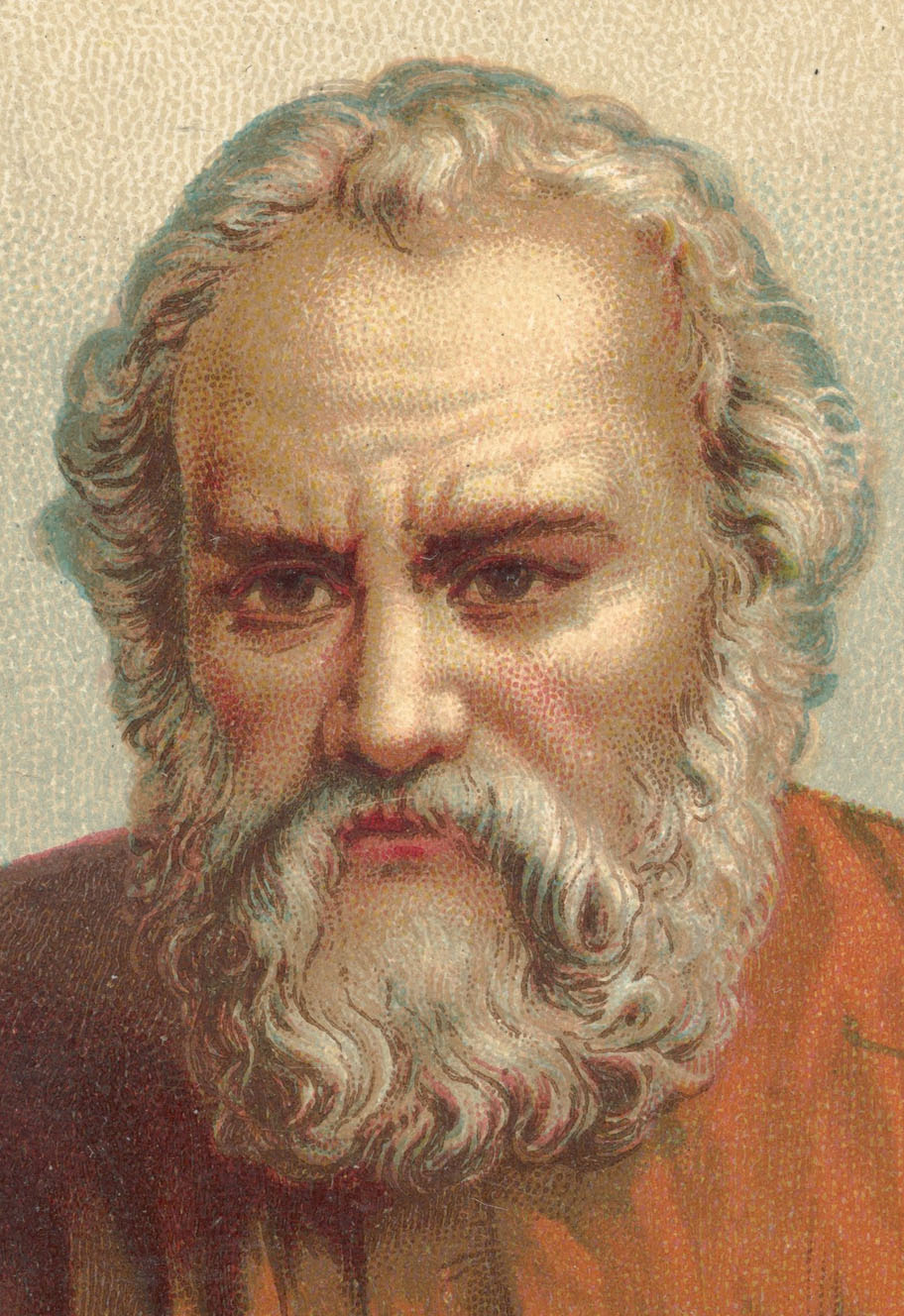Archimedes
Born:
C. 287 BCE
Died:
C. 212 BCE
Archimedes was a Greek mathematician, physicist, engineer, inventor, and astronomer known for his significant contributions to various fields of science and mathematics. He was one of the most brilliant minds of ancient Greece, and his work laid the foundation for many scientific principles. Here are some key aspects of Archimedes' life and achievements:
Early Life and Education: Archimedes was born in the city of Syracuse on the island of Sicily, which was a Greek colony at the time. Little is known about his early life, but he likely received his education in Alexandria, a major centre of learning in the ancient world.
Mathematics: Archimedes made important contributions to geometry, calculus, and numerical calculations. He is credited with discovering the principles of buoyancy and developing the concept of the lever and the compound pulley.
Archimedes' Principle: Archimedes' principle states that a body submerged in a fluid is subject to an upward buoyant force equal to the weight of the fluid it displaces. This principle is fundamental to understanding buoyancy and flotation.
Lever and Pulley Systems: Archimedes famously said, "Give me a lever long enough and a fulcrum on which to place it, and I shall move the world." He demonstrated the power of levers and pulleys in lifting heavy objects with minimal effort.
Mathematical Achievements: Archimedes calculated an accurate approximation of the mathematical constant π (pi) and developed methods for calculating the areas and volumes of various geometric shapes. His work in calculus involved determining the area under a curve and the volume of a solid with a curved surface.
Archimedean Screw: Archimedes is credited with inventing the Archimedean screw, a device used for raising water. It consists of a helical surface around a central shaft, and as the screw turns, water is lifted.
Defensive Inventions: During the Siege of Syracuse by the Romans, Archimedes is said to have developed various ingenious defensive machines, such as the Claw of Archimedes, a large crane with a grappling hook, to defend the city.
Death: Archimedes met his death during the capture of Syracuse by the Romans in 212 BCE. According to historical accounts, he was killed by a Roman soldier despite orders from the Roman general to spare him.
Archimedes' work had a profound and lasting impact on the fields of mathematics and physics. His principles and inventions have influenced scientific thought for centuries, and his legacy is celebrated as a testament to the power of human intellect and ingenuity.

Quick Facts
- Archimedes made significant contributions to geometry, calculus, and numerical calculations.
- He discovered the principles of buoyancy and developed the concept of the lever and the compound pulley.
- Archimedes calculated an accurate approximation of the mathematical constant π (pi).
- He invented the Archimedean screw, a device used for raising water.
- During the Siege of Syracuse, he developed defensive machines, including the Claw of Archimedes.
Further Reading
Art &
Architecture
Ancient Greek art and architecture, with its harmonious proportions and timeless elegance, continue to inspire awe and admiration millennia later.
Discover
Greek Mythology & Mythical Characters
Greek mythology, a rich tapestry of gods, heroes, and mythical creatures, captivates the imagination with its tales of love, betrayal, and epic adventures that delve into the depths of the human psyche.
Discover
Ancient Greek History
Ancient Greek history, marked by remarkable achievements in democracy, philosophy, and warfare, shaped the foundation of Western civilization, leaving an indelible legacy of innovation and cultural influence that continues to resonate to this day.
Discover
Ancient Greek Olympics
The ancient Greek Olympics, held in Olympia every four years, celebrated athleticism, unity, and cultural pride, serving as a testament to the enduring spirit of competition and excellence that transcends time and borders.
Discover
Ancient Greek Wars
Ancient Greek wars, such as the Persian Wars and the Peloponnesian War, were pivotal conflicts that shaped the course of history, highlighting the struggle for power, independence, and the clash of civilizations in the ancient Mediterranean world.
Discover
Ancient Greek Culture and Society
Ancient Greek culture and society, characterized by its emphasis on art, philosophy, and civic engagement, fostered a vibrant intellectual and social landscape where innovation flourished, democracy thrived, and the pursuit of knowledge and excellence was celebrated as fundamental values of civilized life.
Discover